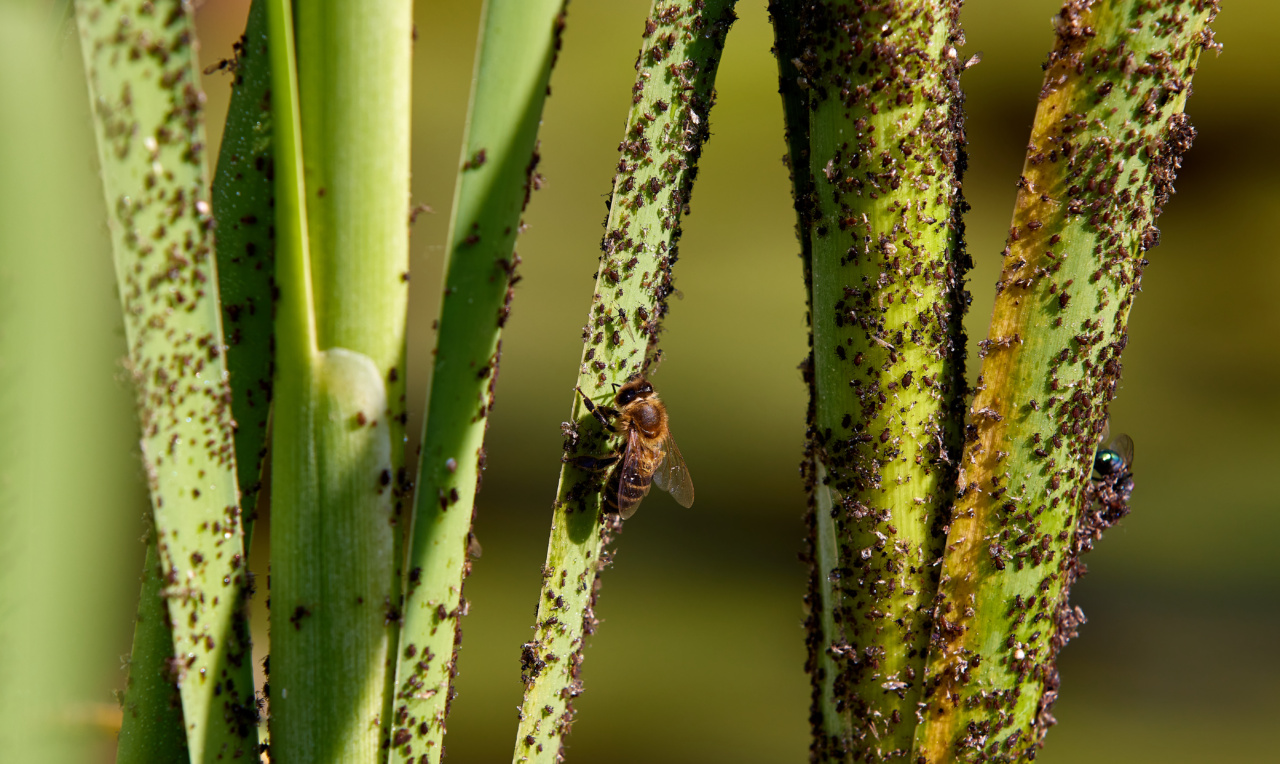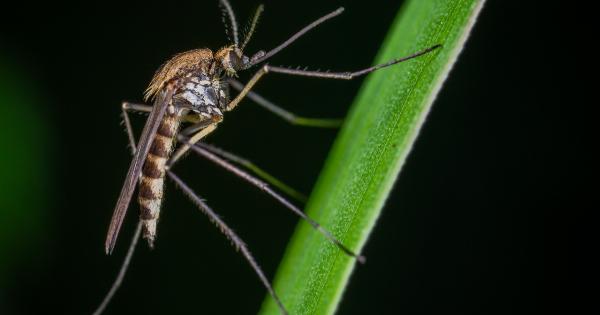Aphids, commonly known as plant lice, are tiny pests that can wreak havoc on your precious garden. These sap-sucking insects can quickly multiply and infest your plants, causing stunted growth, wilting, and even death.
Dealing with aphid infestations can be a real challenge for gardeners and farmers alike. Fortunately, Mother Nature has provided us with some effective solutions to tackle these pesky bugs without resorting to harmful chemicals.
1. Ladybugs – Nature’s Little Helpers
When it comes to aphid control, ladybugs are on the frontline. These beautiful beetles are natural predators of aphids and can consume hundreds of them in a single day.
By releasing ladybugs into your garden, you can introduce a natural and effective way to combat aphid infestations.
2. Lacewings – Delicate Yet Deadly
Lacewings are delicate insects with lacy wings, but don’t underestimate their prowess in controlling aphids. The larvae of lacewings are voracious predators of aphids, devouring them with great enthusiasm.
By attracting lacewings to your garden through the use of specific plants or commercially available releases, you can significantly reduce aphid populations.
3. Parasitic Wasps – Tiny Warriors
Parasitic wasps might sound intimidating, but they are actually invaluable allies in the fight against aphids.
These tiny warriors lay their eggs inside aphids, and when the wasp larvae hatch, they consume the pests from within, ultimately leading to their demise. By providing habitats for parasitic wasps, such as flowering plants and small sheltered areas, you can encourage their presence in your garden.
4. Neem Oil – A Natural Repellant
Neem oil, derived from the neem tree, is a natural insecticide and repellent that has been used for centuries. It disrupts the life cycle of aphids, making it difficult for them to reproduce and survive.
Mixing neem oil with water and applying it to infested plants can help control aphid populations effectively.
5. Garlic Spray – A Fragrant Defense
Aphids are repelled by the strong scent of garlic, making garlic spray an effective deterrent. To make your own garlic spray, blend garlic cloves with water, strain the mixture, and then spray it onto your plants.
This natural repellent will not harm the plants but will discourage aphids from settling in your garden.
6. Soapy Water – A Simple Solution
Aphids have a waxy coating on their bodies that helps protect them. By using a solution of mild soap and water, you can break down this protective layer and effectively kill the aphids.
Simply mix a few drops of liquid soap with water in a spray bottle and apply it to the affected plants. Repeat as necessary until the aphids are eradicated.
7. Plant Diversity – Nature’s Defense Mechanism
Creating a diverse and balanced garden can help naturally repel aphids. By planting a variety of plants, particularly those known for their strong scents or natural pest-repellent properties, you can reduce the likelihood of aphid infestations.
Some plants that act as natural deterrents include marigolds, chives, mint, and lavender.
8. Introduce Beneficial Nematodes
Beneficial nematodes are microscopic worms that can be highly effective in controlling aphid populations. These nematodes seek out and attack aphid larvae, disrupting their life cycle and preventing further infestation.
You can purchase beneficial nematodes commercially and release them into your garden to target aphids specifically.
9. Hydrogen Peroxide – A Secret Weapon
Hydrogen peroxide, a common household item, can also be used to combat aphid infestations. By diluting 1 part hydrogen peroxide with 3 parts water, you can create a spray that kills aphids on contact.
However, it’s important to test the solution on a small area of the plant first to ensure it doesn’t harm the plant itself.
10. Time for Some Companion Planting
Companion planting involves strategically growing specific plants next to each other to benefit from their symbiotic relationships. Some plants naturally repel aphids and can be used as companions to protect vulnerable crops.
For instance, planting nasturtiums near your prized roses can deter aphids from attacking them.
Conclusion
Aphid infestations can be a frustrating and detrimental problem for any gardener or farmer. However, nature has provided an array of solutions to combat these tiny pests without resorting to harmful chemicals.
From enlisting the help of ladybugs and lacewings to utilizing natural repellents like neem oil and garlic spray, there are numerous eco-friendly methods to control aphid populations. By incorporating these nature-approved solutions into your gardening practices, you can protect your plants and maintain a healthy, thriving garden.





























